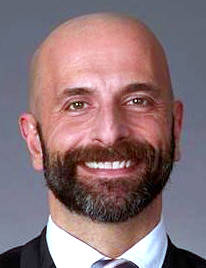
The number of new monkeypox cases has declined since this summer, but many questions remain about symptoms, transmission, vaccines, treatments and whether the virus that causes the disease can mutate.
For health journalists covering the evolving monkeypox story, AHCJ’s webinar on Sept. 22 at noon EST provides a great opportunity to get answers to some of your questions by asking White House National Monkeypox Response Deputy Coordinator Demetre Daskalakis, M.D, M.P.H.
Dr. Daskalakis will talk about the latest understanding of the science around monkeypox and address the disproportionate impact the disease has had on Black and Hispanic people. Visit this webpage for Zoom meeting details.
As of Sept. 20, there were 24,203 confirmed monkeypox cases in the U.S. and 63,117 globally, according to the CDC.
Case numbers have fallen nationally by about 50% since this summer. The Biden administration attributes the decline to its efforts to educate health systems and the public about monkeypox testing and symptoms and getting vaccines and treatments to those at risk.
Epidemiologists say the network of people currently most at risk for monkeypox are men who have sex with men, a group that includes people who identify as gay, bisexual, transgender and nonbinary. However, that doesn’t mean that other networks of people may not be impacted in the future.
Cases are still rising in many Black and Hispanic communities, and data are showing vaccination rates in these communities are lagging among non-Hispanic whites.
“We’re seeing that monkeypox cases are concentrating in gay, bisexual, and other men who have sex with men of color while most vaccines … have been administered to white men,” Daskalakis said at a White House briefing on Sept. 15.
In response, the CDC launched the Monkeypox Vaccine Equity Pilot Program to set aside 10,000 vials of monkeypox vaccine and help state, local, city, tribal and territorial public health departments reach communities disproportionately impacted by monkeypox.
For more background and experts to contact about monkeypox, see this tip sheet on 3 ways for covering race and ethnic disparities, check out this site for the latest on academic research about monkeypox and this guide by the Association of LGBTQ Journalists on how to report on this topic without perpetuating stigma.
If you cannot join the webinar when it is live, you can still have your questions asked and answered. Please email your questions to bara@healthjournalism.org.






